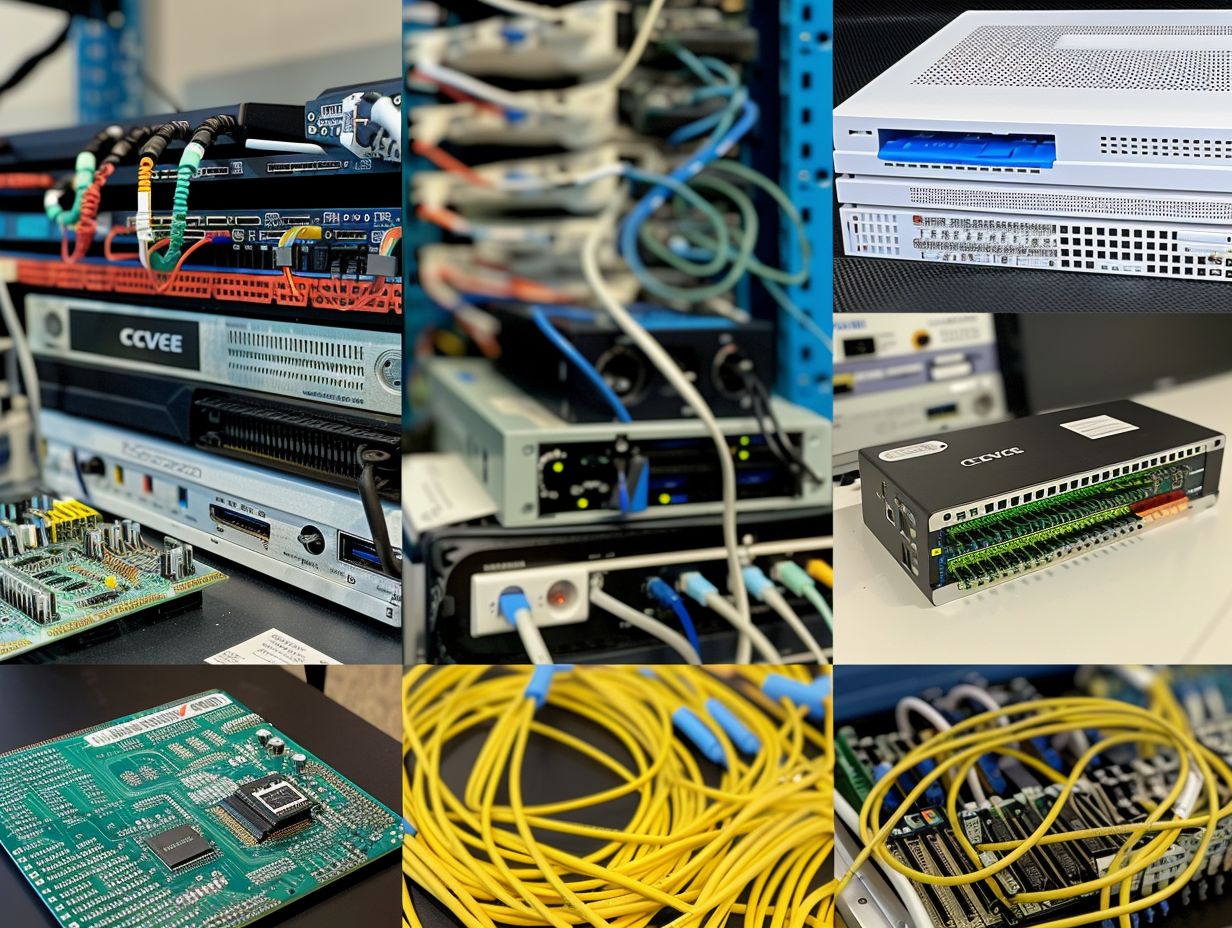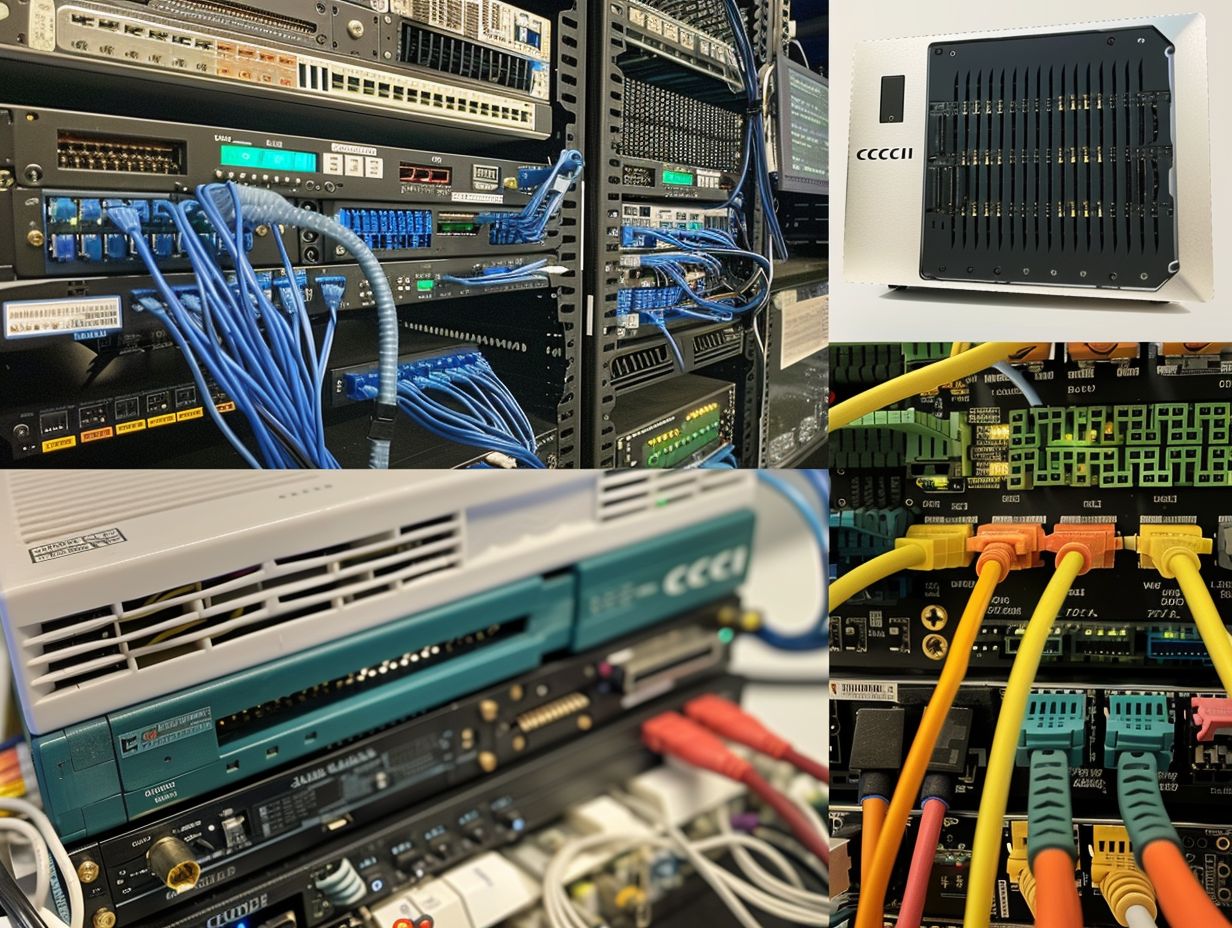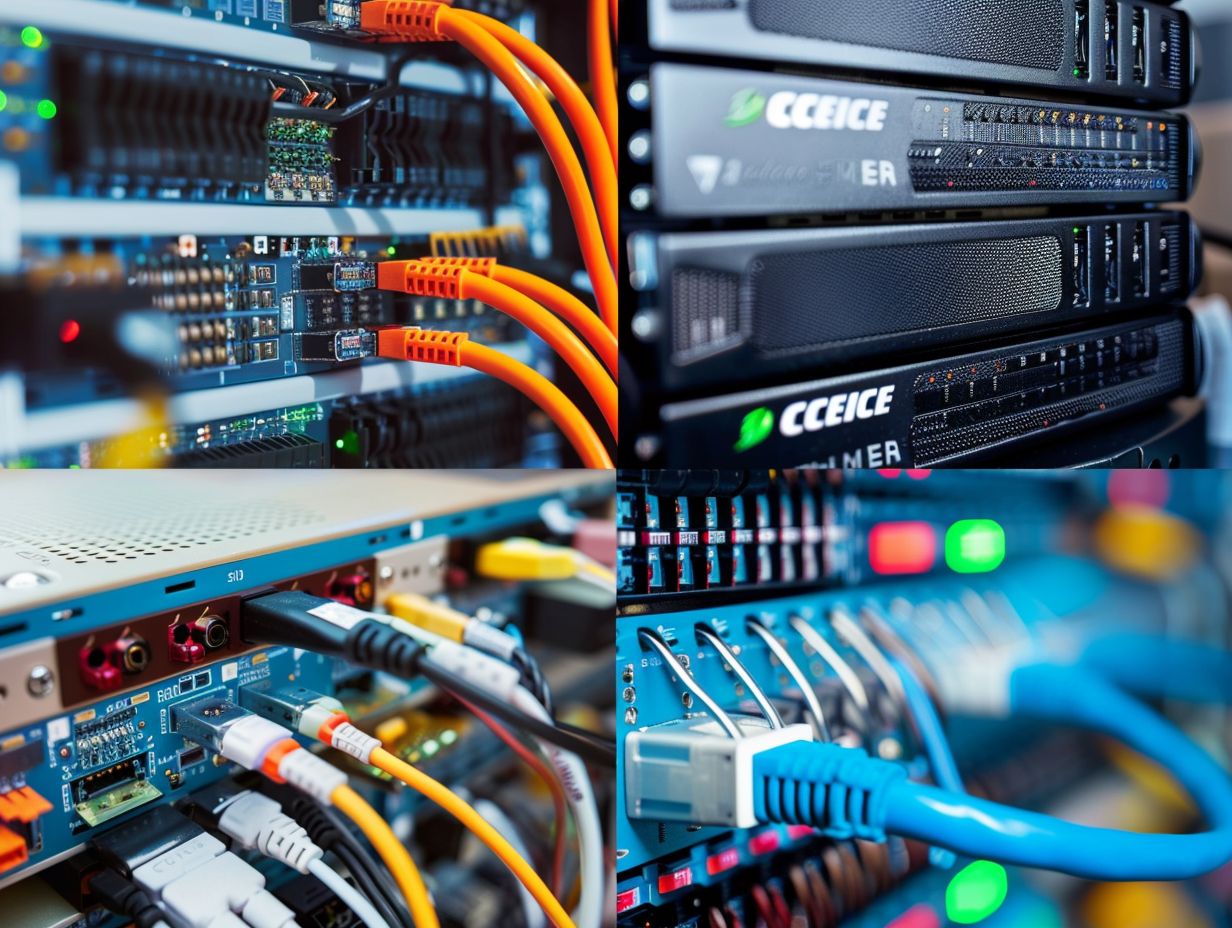If you are considering diving into the world of Cisco networking courses but feeling overwhelmed by the options available, this comprehensive overview aims to break down everything you need to know about Cisco. You will learn about the different courses they offer, how to choose the right one for you, and the various certification levels available.
From popular courses like CCNA, CCNP, and CCIE to online options and bootcamps, you will be guided through the process of preparing for a Cisco course and the exciting career opportunities that await you upon certification. Discover the path that could lead you to a successful career in the field of networking.
Key Takeaways:

Cisco Networking Courses: An Overview
Enroll in Cisco Networking Courses for a comprehensive training experience in networking skills, with a focus on Cisco technologies and certifications. These courses cover a wide range of topics, spanning from foundational concepts to advanced networking principles.
As a student in these courses, you will benefit from a hands-on learning approach that allows you to apply theoretical knowledge to real-world scenarios. The emphasis on practical skills ensures that you will acquire the expertise needed to effectively configure, troubleshoot, and manage Cisco networks.
Throughout the courses, you will delve into the intricacies of networking protocols such as IPv4, IPv6, routing, and switching, gaining a deep understanding of how data is transmitted across networks. Additionally, the courses place a strong emphasis on security, with dedicated modules focusing on network security protocols and best practices.
Furthermore, the inclusion of lab exercises is designed to enhance the learning process by providing you with the opportunity to practice and refine your skills in a simulated network environment.
What is Cisco and What Do They Offer?
Cisco is a leading provider of networking solutions and certifications, offering a wide range of courses tailored for IT professionals. You will find specialized training opportunities in key areas such as CCNA, EIGRP, and network security.
These certifications hold high regard within the IT industry, serving as a demonstration of your expertise in networking concepts, routing protocols, and cybersecurity. Cisco’s CCNA program provides individuals with essential knowledge in critical areas like network fundamentals, IP connectivity, and automation.
For those seeking to deepen their understanding of advanced routing techniques, the EIGRP course offers in-depth training on Enhanced Interior Gateway Routing Protocol. Additionally, the network security course is designed to help you fortify systems against cyber threats and enhance data protection measures.
Choosing the Right Cisco Course
When selecting a Cisco course, it is essential to consider various factors to ensure the development of the skills and expertise needed in the networking field. Factors to consider include the level of hands-on experience provided, the focus on practical applications, and the coverage of routing and switching concepts.
These considerations are crucial in aligning the chosen course with your career goals and interests. Evaluating the certification relevance of the course, particularly its association with CCNA or other recognized certifications, can significantly boost your employability and credibility within the IT industry.
Additionally, it is important to assess whether the course content meets your specific learning objectives, whether you are new to the field or looking to advance your existing networking knowledge. Taking these factors into consideration will allow you to make an informed decision and maximize the benefits of your Cisco training.
Factors to Consider
When you are selecting a Cisco course, it is important to consider factors such as the level of hands-on labs available, the emphasis on security protocols, compatibility with operating systems like Linux and Windows Server, as well as the practical skills that will be acquired.
Individuals looking to enhance their networking knowledge should opt for a course that offers extensive hands-on lab exercises. These labs provide a valuable opportunity to apply theoretical concepts in a practical environment, facilitating a deeper comprehension of networking technologies.
Incorporating robust security features into the course curriculum is crucial for preparing students to tackle the challenges posed by cyber threats in today’s digital environment. Courses that cover operating systems such as Linux and Windows Server can expand your skill set and improve your prospects for employment in the IT industry. Developing practical skills through real-world scenarios and simulations can further strengthen the knowledge acquired throughout the course.
Cisco Certification Levels

Cisco offers certifications at various levels, starting from entry-level certifications like CCNA and EIGRP to expert-level certifications. These levels provide a structured approach for advancing your networking skills and knowledge.
Entry-level certifications such as CCNA focus on foundational networking principles and basic configuration tasks.
As you progress up the ladder, associate-level certifications delve deeper into specific areas like routing and switching, wireless networking, and security.
Professional-level certifications target experienced networking professionals looking to gain advanced knowledge in design and implementation.
Expert-level certifications, such as the renowned CCIE, showcase mastery in complex networking technologies and solutions.
Each certification level builds upon the previous one, equipping you with a comprehensive understanding of networking concepts and practices.
Entry, Associate, Professional, and Expert Levels
Cisco certifications are structured into four levels – Entry, Associate, Professional, and Expert. Each level focuses on different aspects of networking, from foundational skills to advanced expertise in areas like CCNA, Linux, Windows Server, and cybersecurity.
At the Entry level, also known as CCENT, individuals acquire basic networking knowledge. Progressing to the Associate level, CCNA certification emphasizes a deeper comprehension of networking concepts and skills necessary for network security and routing. The Professional level, featuring certifications like CCNP, delves into more intricate network solutions involving routing, switching, and troubleshooting. Finally, the Expert level, distinguished by the prestigious CCIE certification, signifies the pinnacle of networking proficiency, demonstrating mastery in designing and implementing complex network infrastructures.
Each stage provides individuals with crucial skills and expertise, equipping them for a variety of roles within the networking field.
Popular Cisco Courses
Some of the most popular Cisco courses include CCNA, CCNP, and CCIE, which provide hands-on training and practical experience through labs. These courses are highly esteemed in the networking industry for their comprehensive coverage.
The CCNA certification, for instance, is well-suited for individuals seeking to establish a strong networking foundation. Many professionals choose CCNP to enhance their skills further, focusing on areas such as security, routing, and switching. Conversely, CCIE is renowned for its advanced-level training, attracting experienced network engineers pursuing top-tier certifications. The industry-wide recognition of these courses underscores their significance in nurturing proficient networking professionals equipped with real-world skills necessary for excelling in the ever-evolving IT landscape.
CCNA, CCNP, and CCIE
CCNA, CCNP, and CCIE are highly coveted Cisco certifications that focus on practical skills, hands-on labs, and expertise in routing and switching. These courses are tailored to individuals who are looking to acquire comprehensive knowledge in networking.
The CCNA certification is considered an entry-level accreditation, offering foundational networking knowledge and skills. Progressing further, CCNP covers network configuration, troubleshooting, and the management of complex networks in greater detail. In contrast, CCIE stands as the most advanced level achievable, requiring a mastery of network infrastructure solutions and advanced troubleshooting techniques. Each certification places a strong emphasis on hands-on experience, allowing learners to implement theoretical knowledge in real-world scenarios. This approach ensures a thorough grasp of networking principles and technologies.
Other Cisco Training Options
Along with traditional courses, Cisco offers various training options such as online courses and bootcamps. These programs provide alternative learning approaches and focus on specialized areas like cyber security.
Online courses offered by Cisco are designed to be flexible and self-paced, allowing you to learn at your own convenience. These courses cover a wide range of topics, from networking fundamentals to advanced cybersecurity strategies.
On the other hand, Cisco bootcamps are intensive training programs that provide hands-on experience and real-world simulations to enhance learning outcomes. They are ideal for individuals looking to quickly upskill or transition to a new career in the tech industry.
Both online courses and bootcamps offer the latest industry insights and expertise from Cisco-certified instructors, ensuring high-quality education for aspiring professionals.
Online Courses and Bootcamps

Cisco’s online courses and bootcamps provide you with flexible learning opportunities that emphasize practical labs and security concepts. These options are designed for individuals who are seeking interactive and specialized training in networking.
The hands-on labs offered in Cisco’s online courses allow you to apply theoretical knowledge in a real-world setting, which enhances your skills and prepares you for industry scenarios. With a strong focus on security, you will gain valuable insights into safeguarding network infrastructures against cyber threats, emphasizing the importance of secure networking practices.
The program’s flexibility enables you to balance your professional commitments while advancing your knowledge, making it an ideal choice for working professionals who are looking to upskill or specialize in the networking field.
Preparing for a Cisco Course
In preparing for a Cisco course, your first steps involve meeting the necessary prerequisites and implementing effective study techniques to enhance your learning outcomes. Engaging in hands-on labs and practical exercises is crucial for mastering networking concepts.
A key aspect of preparing for a Cisco course is to acquaint yourself with the exam objectives and requirements. This will enable you to develop a structured study plan that focuses on key areas. Utilizing resources such as Cisco study guides, online tutorials, and practice exams can help reinforce your understanding of complex topics.
Joining study groups or participating in online forums dedicated to Cisco certifications can offer valuable insights and support from peers. By allocating specific study time each day, maintaining organization, and regular practice, you can significantly improve your comprehension and retention of the course material.
Prerequisites and Study Tips
Before you enroll in a Cisco course, it is essential to understand the prerequisites and implement effective study tips for success. Hands-on labs and a focus on security, IPv4, and IPv6 protocols can enhance your learning experience.
Having a strong foundation in networking fundamentals is crucial for you before diving into Cisco courses. Understanding concepts such as subnetting, routing, and switching will provide you with a solid base for more advanced topics.
Study tips like creating a study schedule, utilizing practice exams, and joining study groups can aid you in efficient preparation. Hands-on labs offer practical experience that reinforces theoretical knowledge, making your learning process more interactive and engaging.
Knowledge of security protocols like SSH, HTTPS, and firewalls, along with a deep understanding of IPv4 and IPv6 addressing, is vital for securing networks and troubleshooting connectivity issues.
Career Opportunities with Cisco Certifications
Having Cisco certifications can open up a variety of career opportunities for you in the IT industry, with roles that span from network engineers to security analysts. Professionals who hold certifications such as CCNA and possess expertise in Windows Server often command competitive salaries.
The demand for skilled IT professionals is on the rise, making Cisco certifications a valuable asset in today’s job market. If you have CCNA credentials, you are not only eligible for networking roles but also have the potential to explore opportunities in network administration, technical support, and cybersecurity. Professionals who are adept in Windows Server have a competitive edge in securing positions as system administrators or server engineers. Companies value their expertise as they seek to enhance their IT infrastructure and operations.
Job Roles and Salary Potential
Individuals holding Cisco certifications have the opportunity to pursue various rewarding job roles in the field, including network administrators, security specialists, and routing and switching experts. These positions typically offer competitive salary potential, particularly for those with certifications such as CCNA.
Professionals with specialized Cisco certifications in security, such as CCNP Security or CCIE Security, can secure high-paying positions as cybersecurity analysts or consultants. Similarly, individuals with expertise in routing and switching, such as CCNP Routing and Switching, play a crucial role in designing and managing complex network infrastructures, opening up lucrative opportunities in network engineering.
The demand for skilled professionals in these specialized areas has been on the rise, creating significant room for career growth and development within the constantly evolving tech industry.
Frequently Asked Questions

What are the different Cisco networking courses available?
There are a variety of Cisco networking courses available, including CCNA, CCNP, CCIE, and DevNet. Each course focuses on different levels of networking skills and certifications.
Which Cisco networking course is right for beginners?
The CCNA course is a great starting point for beginners who are new to networking. It covers the fundamentals of networking and prepares students for more advanced courses.
Do I need any prior experience before taking a Cisco networking course?
No prior experience is required for the CCNA course, but some basic knowledge of networking concepts would be beneficial. CCNP and CCIE courses require a CCNA certification as a prerequisite.
What is the difference between the CCNA, CCNP, and CCIE courses?
The CCNA course covers entry-level networking concepts and prepares students for network administration and support roles. CCNP focuses on advanced networking topics and is ideal for network engineers and architects. CCIE is the most advanced course and is designed for expert-level networking professionals.
Is there a specific Cisco networking course for network security?
Yes, the CCNA Security course focuses on securing network infrastructure and is a great choice for those interested in network security roles.
Are there any online options for Cisco networking courses?
Yes, Cisco offers online courses for all their networking certifications, including CCNA, CCNP, CCIE, and DevNet. These online courses allow for flexible learning and can be accessed from anywhere with an internet connection.
